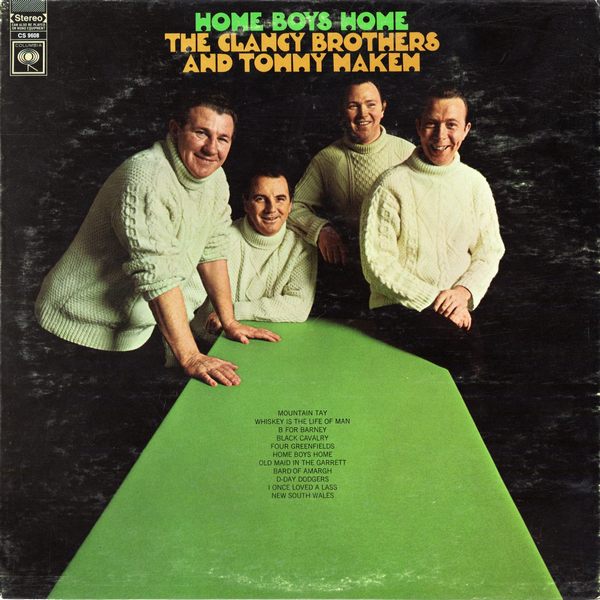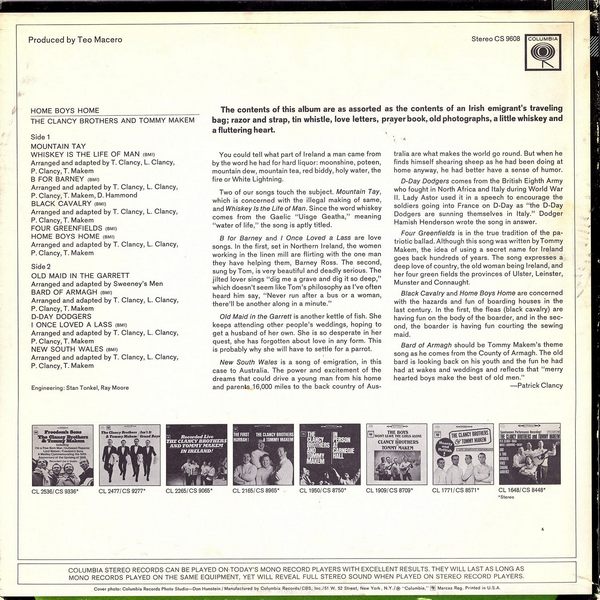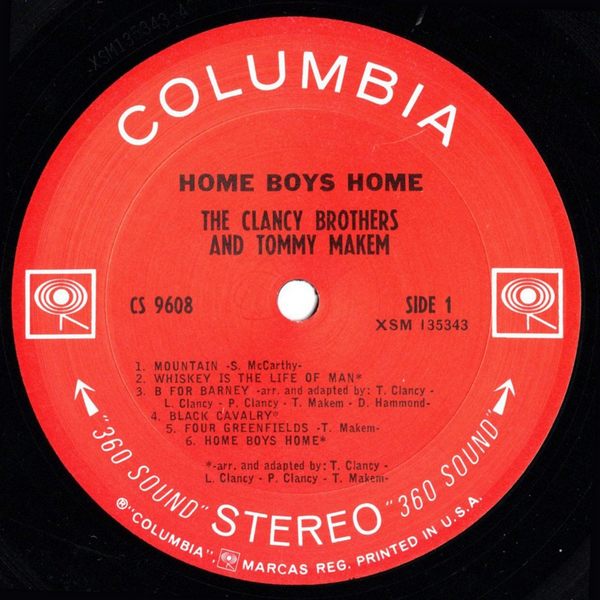

 |


 |
Sleeve Notes
The contents of this album are as assorted as the contents of an Irish emigrant traveling bag; razor and strap, tin whistle, love letters, prayer book, old photographs, a little whiskey and a fluttering heart.
You could tell what part of Ireland a man came from by the word he had for hard liquor: moonshine, poteen, mountain dew. mountain tea, red biddy, holy water, the fire or White Lightning.
Two of our songs touch the subject. Mountain Tay, which is concerned with the illegal making of same, and Whiskey Is the Life of Man. Since the word whiskey comes from the Gaelic "Uisge Geatha," meaning, "water of life," the song is aptly titled.
B for Barney and I Once Loved a Lass are love songs. In the first, set in Northern Ireland, the women working in the linen mill are flirting with the one man they have helping them, Barney Ross. The second, sung by Tom, is very beautiful and deadly serious. The jilted lover sings "dig me a grave and dig it so deep," which doesn't seem like Tom's philosophy as I've often heard him say, "Never run after a bus or a woman, there'll be another along in a minute."
Old Maid in the Garrett is another kettle of fish. She keeps attending other people's weddings, hoping to get a husband of her own. She is so desperate in her quest, she has forgotten about love in any form. This is probably why she will have to settle for a parrot.
New South Wales is a song of emigration, in this case to Australia. The power and excitement of the dreams that could drive a young man from his home and parents 16,000 miles to the back country of Australia are what makes the world go round. But when he finds himself shearing sheep as he had been doing at home anyway, he had better have a sense of humor.
D-Day Dodgers comes from the British Eighth Army who fought in North Africa and Italy during World War II. Lady Astor used it in a speech to encourage the soldiers going into France on D-Day as "the D-Day Dodgers are sunning themselves in Italy." Dodger Hamish Henderson wrote the song in answer.
Four Greenfields is in the true tradition of the patriotic ballad. Although this song was written by Tommy Makem, the idea of using a secret name for Ireland goes back hundreds of years. The song expresses a deep love of country, the old woman being Ireland, and her four green fields the provinces of Ulster, Leinster, Munster and Connaught.
Black Cavalry and Home Boys Home are concerned with the hazards and fun of boarding houses in the last century. In the first, the fleas (black cavalry) are having fun on the body of the boarder, and in the second, the boarder is having fun courting the sewing maid.
Bard of Armagh should be Tommy Makem's theme song as he comes from the County of Armagh. The old bard is looking back on his youth and the fun he had at wakes and weddings and reflects that "merry hearted boys make the best of old men."